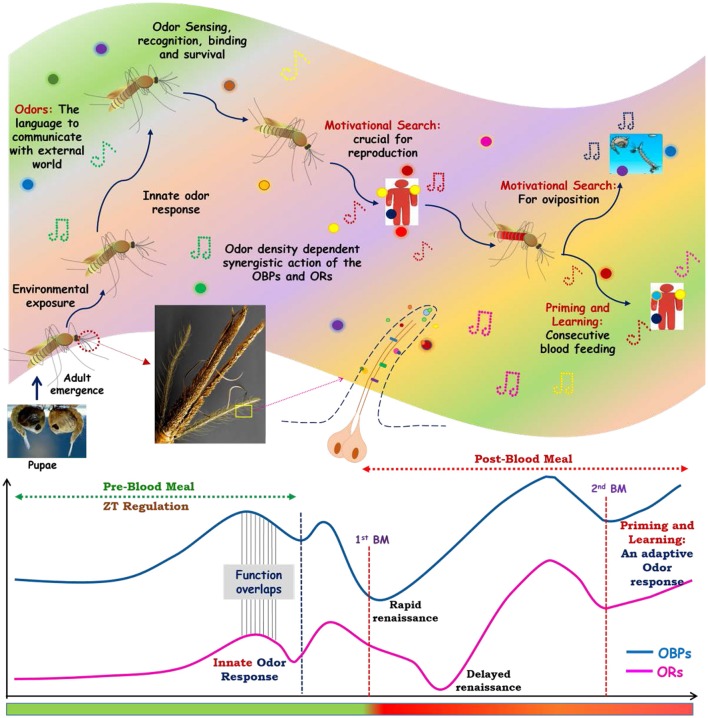Figure 8.
How smart actions of olfactory system manages blood feeding associated odor response: an evolutionary speciality of adult female mosquitoes. After emergence from pupae adult mosquitoes are exposed to the overwhelmed odor world, where odorants chemicals act as a language of communication with the external world. The sophisticated innate olfactory system of mosquitoes enables them to recognize and differentiate this wide variety of odorants which are crucial for their every life cycle stages. Inner physiological motivation, as well as the age and exposure of mosquitoes toward the external world, promote them for host seeking and blood feeding event. After taking blood meal mosquitoes initiate next level of physiological cum behavioral events i.e., oviposition. Apart from that, first exposure to vertebrates facilitates learning and second blood feeding events. These whole odors mediated response is tactfully managed by the synergistic actions of Odorant binding proteins (OBPs) and olfactory receptors (Ors). The overlapping circadian rhythm dependent functions of OBPs and Ors govern the pre-blood meal events of host fetching events. As soon as the mosquitoes take blood meal the functions of OBPs and Ors ceased for some period, but the recovery of OBPs actions occurs early as compared to Ors to perform the next level of behaviors. Mosquitoes, then take advantage/adapted from priming and learning of the first blood meal exposure for the more rapid consecutive blood feeding.

